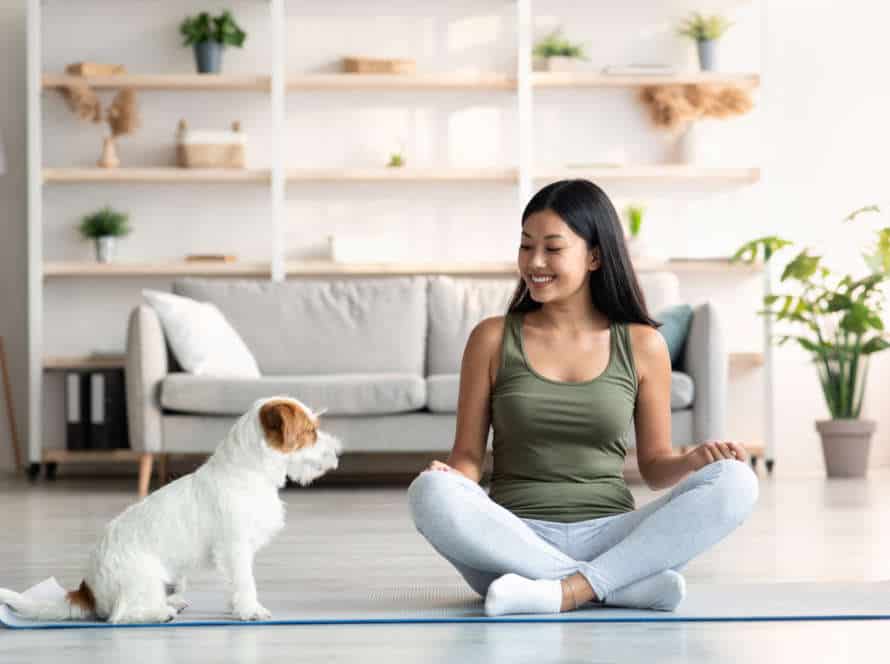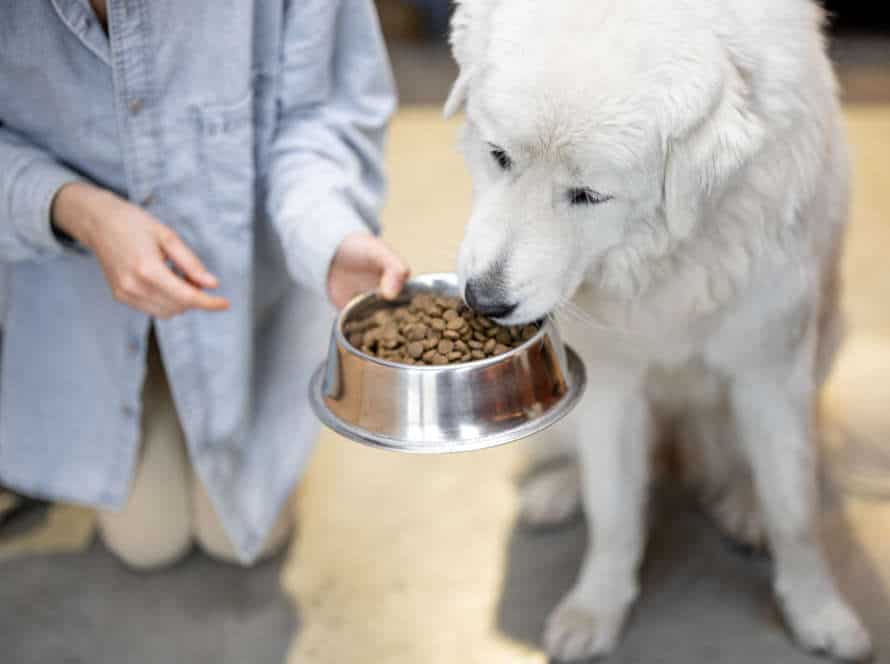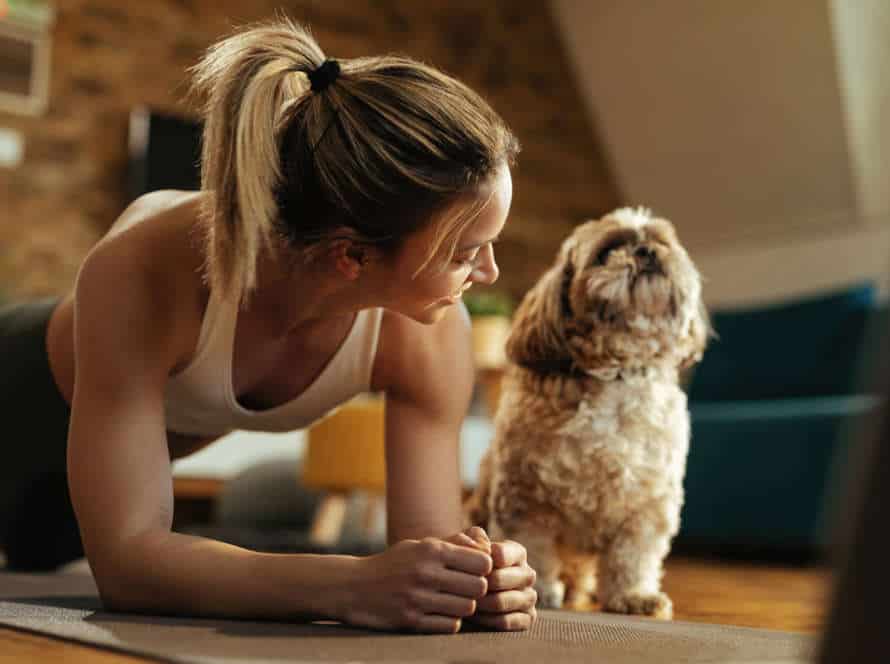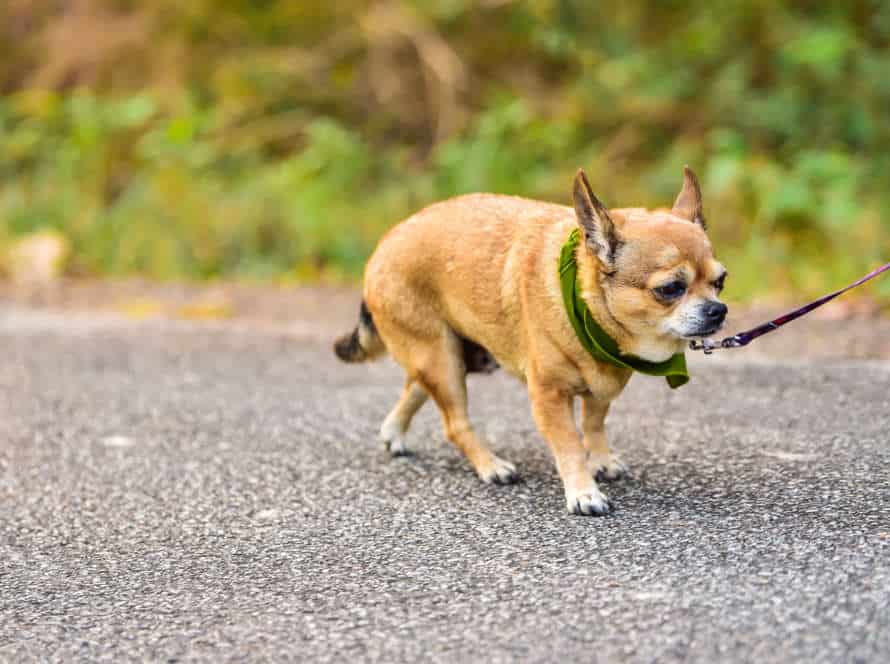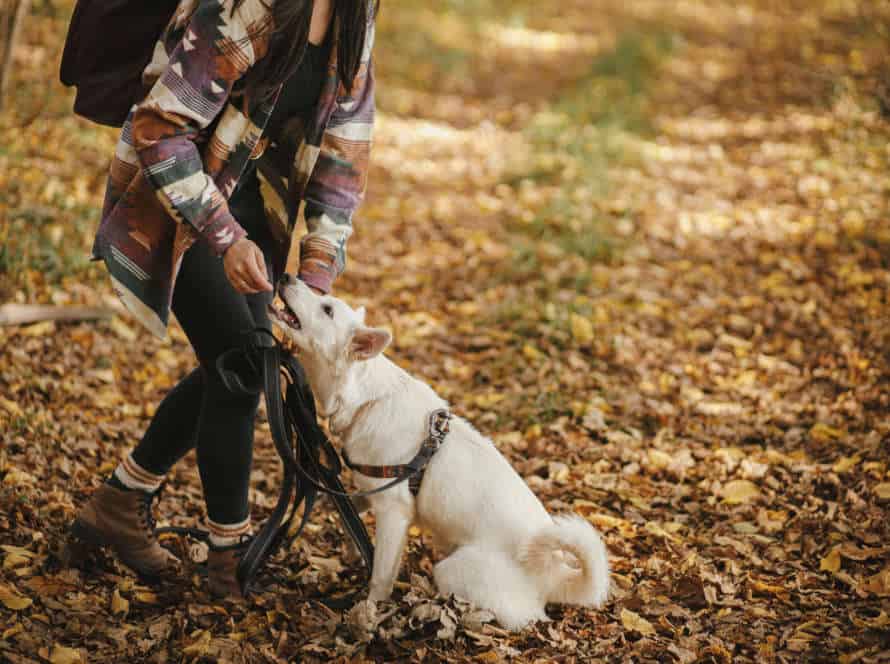Strengthening Trust with Your Adult Dog: Proven Techniques
Strengthening trust with your adult pup takes time, patience and regular training. Here’s some proven strategies to help:
- Positive reinforcement: Give treats, hugs and praises when pup does something you like. Will make them feel loved, earning trust.
- Stick to a routine: Dogs need predictability. Have a schedule for meals, exercise and playtime. Gives them a sense of security.
- Clear communication: Use words and body language that pup can understand. Avoid confusing or harsh training; it undermines trust and makes them scared.
- Quality time: Hang out with pup, e.g. walks and cuddles. Deepens the bond, brings trust.
Trust builds through positive experiences and mutual understanding. To get there, take it slow, be patient and consistent. With this, you’ll have a strong bond that lasts forever!
Understanding Your Dog’s Behavior
Dogs are complicated creatures! It can be hard to interpret their behavior. So, to form a trusting bond with your adult pup, use these tried and true methods. This is the key to understanding what they’re trying to say. Let’s explore them!
Learning How Dogs Communicate
Learning how dogs communicate is essential for comprehending your pup’s behaviour and strengthening trust. Dog communication can be split into two: Body Language and Vocalizations. Body Language includes facial expressions, body position, tail and ear movement, as well as physical touch. Vocalizations incorporate barks, growls, whines, and howls.
Here are some ways to interpret your pup’s behaviour:
- Tail wagging: Quick and broad wagging shows excitement or joy, while a low tail wag may mean fear or insecurity.
- Direct Eye Contact and a relaxed body posture: Shows trust and love.
- Cowering posture: Indicates fear, anxiety or sickness.
- Growling or Barking: Shows aggression or warning.
Understanding your pup’s communication helps you create a strong relationship with your furry friend and prevent negative reactions.
Signs of Fear and Anxiety in Your Dog
It’s important for responsible dog owners to recognize signs of fear and anxiety. Understanding your pup’s behavior is key for trust and their well-being. Here are some common signs of stress:
- Panting
- Shaking/trembling
- Lip licking/yawning
- Excessive barking/whining
If you spot any of these, create a calm environment. Identify and remove any triggers of stress/anxiety. Provide positive reinforcement and love. Pro Tip: Consult a vet or dog trainer for more help.
Importance of Body Language
Body language is key for building trust with your adult dog. Dogs use body language like tail wagging, ear positioning, eye contact, and posture to communicate non-verbally. By understanding your dog’s body language, you can:
- respond to their needs and emotions
- know their personality better
- reduce their anxiety
- build a stronger bond
For example, a wagging tail means they’re happy or excited, while a tucked tail means they’re nervous or scared.
To communicate with your dog better, observe their behavior, get professional help if needed, and respond positively. It’s also important to respect their boundaries and body language cues, which will prevent unwanted behavior and create trust.
Building Trust
Building trust is key to having a prosperous and sound relationship with your adult pooch. Trust forms the basis for respect, comprehension and communication between you and your dog. To help you better your relationship with them and make a harmonious link with their true self, we’ll discuss effective techniques and plans to bolster trust with your adult dog.
Consistency and Routine
For building trust and a strong bond with your adult dog, consistency in routine is essential. Here are proven techniques that can help you:
- Have an everyday routine for feeding, exercise, and playtime. This will give your pup a feeling of certainty and comfort. Same schedule each day is recommended.
- With training, use consistent commands and cues. This will help your dog know what’s expected of them and prevent confusion.
- Set clear rules and boundaries, and be consistent in enforcing them. Knowing what’s expected will make your dog feel more secure and confident.
- Provide lots of rewards and positive reinforcement when they behave well. This will nurture a sense of trust and appreciation in your dog.
Trust and closeness with your adult dog needs time and effort. But with consistency and routine, you can create a strong bond that will last forever.
Positive Reinforcement Techniques
Positive reinforcement is a great way to build trust with your adult dog. Here are some methods that can help:
- Give treats and praise for good behavior. Instead of punishing bad behavior, reward your pooch with treats and kind words when they do something good. E.g. if your dog sits when asked, give them a treat and say “good boy/girl!”
- Use a clicker to mark good behavior. A clicker makes a distinct clicking sound. Every time your dog does something great, click the clicker and give them a treat.
- Train with consistency. Dogs love routine and consistency. Use the same commands, rewards and consequences each time.
- Be patient and avoid punishment. Dogs respond better to positive reinforcement. So, don’t scold, hit or punish them.
By using these techniques consistently, you’ll create a strong bond of trust with your adult dog.
Using Treats to Strengthen Your Bond
Treats are a great way to bond with your adult pup and boost trust. Dogs appreciate treats and use them to build a trusting relationship with their human. Here are some tips to use treats to get closer to your dog:
- Reward good doggy behavior like following orders or showing love with treats.
- Use treats to encourage your pooch to repeat positive actions.
- Initiate playtime with treats like fetch or hide and seek.
Remember not to excessively give treats. Too many treats can cause weight gain, dental issues, and other health problems.
Socialization and Exposure
Socializing your adult dog is a great way to build trust. Positive reinforcement and activities that encourage trust can help increase their confidence and reduce their anxiety. Let’s discuss how socialization and exposure can help strengthen your bond with your adult pup!
Introducing Your Dog to New People and Animals
Introducing Your Dog to New People and Animals is important! To help with this, here’s what you can do:
- Start Early – Get your pup used to people and other animals as soon as you can.
- Use Positive Reinforcement – Praise and treat them for good behavior around new people and animals.
- Stay Calm – Dogs understand your emotions, so it’s essential to stay relaxed when introducing them to new people and animals.
- Monitor Body Language – Closely watch your dog’s body language. Make sure they feel safe and not anxious.
- Patience & Consistency – Socialization is a process that takes time, patience and consistency. Practice regularly to help your pup become more confident.
By following these techniques, you can help your adult dog become more social, while strengthening your bond!
Exposure to Different Environments
Want to build trust with your adult dog? Expose them to varying environments and socialization techniques! Give them new sights, sounds, smells and experiences. You’ll teach them to be safe and confident, reducing their worries. Here are some techniques you can try:
- Clicker Training: Use a clicker and treats to show your pup the behaviors you want. Reward their good behavior and give them confidence.
- Leash Training: Get your dog used to wearing a leash and collar. Start with short walks, and gradually move them to longer lengths in different places.
- Dog Parks: Let your pup socialize and play with other dogs. Start slow, visiting during off-peak hours. As they become more comfortable, increase the time and frequency.
Be patient and consistent. Give them positive praise and treats during the process. With time, they’ll trust you and feel secure in any environment.
The Importance of Regular Exercise
Exercise isn’t just great for your pup’s physical health, it also plays a huge role in their socialization and contact with the outside world. Using proven methods, exercise can help build trust between you and your adult dog.
Exercising gives lots of chances for socializing – exposing your dog to new people, dogs and places. This can help make them more confident and reduce their anxiety in strange scenarios.
Here are some techniques to help build trust:
- Play games – get them involved in interactive games like fetch and tug-of-war. This is a great way to bond and get some physical activity.
- Go for walks – regular walks give them different atmospheres, sights and sounds, which can help them get used to new situations.
- Take new routes – by trying out new paths, your dog can discover new smells and sights, which can help reduce their anxiety and build their confidence.
By using regular exercise and these techniques, you can strengthen trust and make your bond with your adult dog even stronger.
Solving Behavioral Issues
Creating a strong bond with your grown-up dog is essential. Good communication with your pup is vital to making trust between you two. Once you get the trust, you can make plans to help the pup understand what is expected of them.
Let’s explore the greatest techniques to utilize when fixing behavioral problems.
Addressing Separation Anxiety
Separation anxiety is a common issue among adult pooches. It can lead to destruction, loud barking or whining, and even physical harm. But don’t worry! There are ways to help your pup with separation anxiety and strengthen your bond.
Here are a few ideas:
- Start by leaving your pup alone for short periods and gradually increase the time.
- Create a safe and comfortable space for your dog to be alone, like a crate or designated area.
- Leave something with your scent, like a t-shirt, to provide comfort.
- Keep departures and arrivals low key.
- If the problem persists, seek help from a professional dog behaviorist.
And don’t forget: Positive reinforcement techniques, such as treats or praise when they improve, will encourage good behavior and foster trust.
Dealing with Aggressive Behavior
Aggressive behavior in adult dogs is a common problem that can be dangerous. To address it, do the following:
- Find the cause. Is it fear, anxiety or territorial issues? Know what triggers it.
- Then, use proactive training. Positive reinforcement and boundaries help.
- Socialize your pup. Redirect stress with toys.
- Do conditioning exercises to reduce anxiety.
Neglecting the problem could lead to harm. Take action to improve life, avoid bad outcomes, and bond.
Handling Excessive Barking
Excessive barking in dogs can be a bother. It can be annoying for both the pup and the owner. But, with the proper techniques, we can stop it and build trust between the two.
Techniques to stop excessive barking:
- Identify the Triggers: See what causes the dog to bark. Once you know, it’s easier to handle or avoid these situations.
- Positive Reinforcement Training: Reward good behavior like staying quiet on command. Give treats and praise when they stay quiet around triggers.
- Be Consistent: Don’t reward bad behavior. Focus on the good.
- Build Trust: Get to know your dog better by spending time together. Go on walks, play and create a stronger bond.
By using these techniques, we can have a more harmonious relationship and get rid of excessive barking!
Strengthening Your Relationship
For an adult pooch, trust with their owner is paramount for a strong relationship. Creating trust means making your dog feel safe and content with you. You need patience, understanding, and to know how your pup learns and talks. In this article, we’ll look into proven methods to help make your bond with your adult dog even stronger.
Quality Time with Your Dog
Strengthen your relationship and build trust with your adult dog – spend quality time! Here are some tips:
- Walks: Take your dog for regular walks – different routes and destinations make it more fun.
- Play: Dogs love games like fetch and tug of war – play with them to release energy and bond.
- Training: Use positive reinforcement like treats and praise – teach behaviour and tricks.
- Relaxation: Spend quiet time with your dog too – sit with them or give them a massage.
Be patient, consistent and positive – make time every day, even just a few minutes.
Active Listening and Effective Communication
Strengthen your relationship with your adult dog through effective communication. Active listening is key. Try these tips!
- Pay attention to body language – barking, whining, tail-wagging.
- Practice nonverbal communication – eye contact, gentle pat, positive reinforcement.
- Listen to vocalizations and respond with empathy.
- Keep a calm and patient attitude, speaking in clear, affirming tones.
- Spend quality time – walks, playtime, cuddles and affection.
Pro tip – Consistent and positive interaction builds trust. With active listening and communication, you can have a happy and healthy relationship with your pet.
Maintaining a Positive Attitude
Having a positive attitude is essential to building trust with your adult dog. They’re sensitive to our emotions. So, negative ones can make it hard to bond. Here are tips to stay positive:
- Focus on positive reinforcement. Reward good behaviour, not punish bad.
- Speak with a positive tone and words when communicating with your pup.
- Take regular breaks doing things you love. Like walking or meditating.
- Spend quality time doing things you both enjoy. Playing fetch or agility competitions.
- Remember, it takes time, effort, and patience. Pro tip: Ask a professional dog trainer for help if you need it.
Frequently Asked Questions
1. How can I build trust with my adult dog?
Building trust with your adult dog requires consistent training and positive reinforcement. Show your dog love and affection, and establish yourself as the pack leader by setting rules and boundaries.
2. How do I know if my adult dog trusts me?
You can tell if your adult dog trusts you by observing their body language. If your dog wags their tail, licks your face, and leans into you, they likely trust you. If they avoid eye contact or growl, they may not trust you yet.
3. How can I improve communication with my adult dog?
To improve communication with your adult dog, learn their body language and vocalizations. Pay attention to their posture and tone of bark to determine what they are trying to communicate. Use consistent commands and positive reinforcement to reinforce good behavior.
4. Is it possible to rebuild trust with an adult dog who has experienced trauma?
Yes, it is possible to rebuild trust with an adult dog who has experienced trauma. It requires patience, consistency, and positive reinforcement. Seek the help of a professional trainer if necessary.
5. Can I strengthen trust with my adult dog through play?
Yes, playing with your adult dog is a great way to strengthen trust. It provides bonding opportunities and reinforces positive behavior. Make sure the play is safe for both you and your dog.
6. What are some proven techniques to strengthen trust with an adult dog?
Some proven techniques to strengthen trust with an adult dog include consistent training, positive reinforcement, establishing yourself as the pack leader, spending time together, and engaging in safe play.


